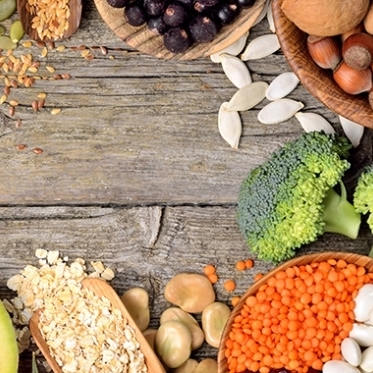
In a world that is filled with a wealth of conflicting evidence online and various opinions from health professionals (or not professionals), it can be very difficult to determine which diet will be best for your goals - never mind which diet is best for your cholesterol levels. There is conflicting science on specific foods and how they may or may not have an impact on your health, but what we can all agree on is that high cholesterol levels are correlated to atherosclerosis and heart disease.
When it comes to cholesterol, it is important to understand that cholesterol itself is not a bad thing. However, too much cholesterol in the body does have strong correlations to chronic diseases. Correlation is not necessary a causation.
Did you know?
A hen egg has no carbohydrates and provides all the energy from fat for growth the chicken. Bulk of that fat is cholesterol. For the chicken, cholesterol is life.
Pregnant women have elevated cholesterol levels. The increased cholesterol supports healthy growth the child in the womb. For the child, cholesterol is life.
Our brain is full of fat and cholesterol. Very low cholesterol level can result in memory loss, muscle damage, and even diabetes. For the brain, cholesterol is life – it makes its own cholesterol.
Cholesterol is life. Cholesterol is good. Body makes cholesterol and the carrying lipoproteins – for a reason!
Cholesterol is, by definition, a type of protein that the body already creates. In fact, the body creates two types of cholesterol - these are HDL’s and LDL’s.
You may have heard that there are good and bad cholesterols, but it is important to reinforce the idea that there is not necessarily a bad cholesterol, but too much of anything could be harmful to your health.
Sorting good from the bad
Cholesterol is a natural mechanism that the body uses to heal arterial walls.
High-density lipoproteins (commonly referred to as good cholesterol) are created in an effort to recycle cholesterol in the arteries - these are the guys that take cholesterol away from the heart and arteries. This is a natural mechanism that the body goes through in an effort to heal.
Low-density lipoproteins, on the other hand (commonly referred to as bad cholesterol), is the type of cholesterol that carries its contents to the arteries. For this reason, many people consider LDL’s bad - although they are rightfully just doing their jobs.
The difficulty arises when there is excessive amount of arterial inflammation and a diet that contains an excessive amount of foods which promote LDL production or contain high amounts of cholesterol in general.
Both, the inflammation and poor diet, promote production of LDL.
This can cause an issue because the body does not have enough HDL’s to recycle the cholesterol and remove the plaque from the arterial walls. In this case, you have a buildup of gunk in the arteries that can raise blood pressure and lead to other chronic diseases.
Moral of the story? Eat foods that are rich in HDL and low in LDL.
In most cases, this means eating a diet that is rich in plant foods like beans, nuts, seeds, leafy greens, and fruit. Try your best to limit fatty meats like pork, beef, lamb, and chicken.
Plant-based foods, including oils, contain no cholesterol.
They contain many more vitamins and minerals to help balance other systems in the body. But watch that oil. Just because it does not have cholesterol does not mean it’s good for you. Not all oils, especially the ones that are refined and have high Omega-6, are good for consumption.
As mentioned previously, cholesterol is not the problem - it is the amount of unbalanced cholesterol you put into your body that can cause challenges. Eating plenty of whole foods helps the “good” cholesterol to handle the “bad.”
NOTE: Before making any changes to your diet, be sure to consult with your health professional.
